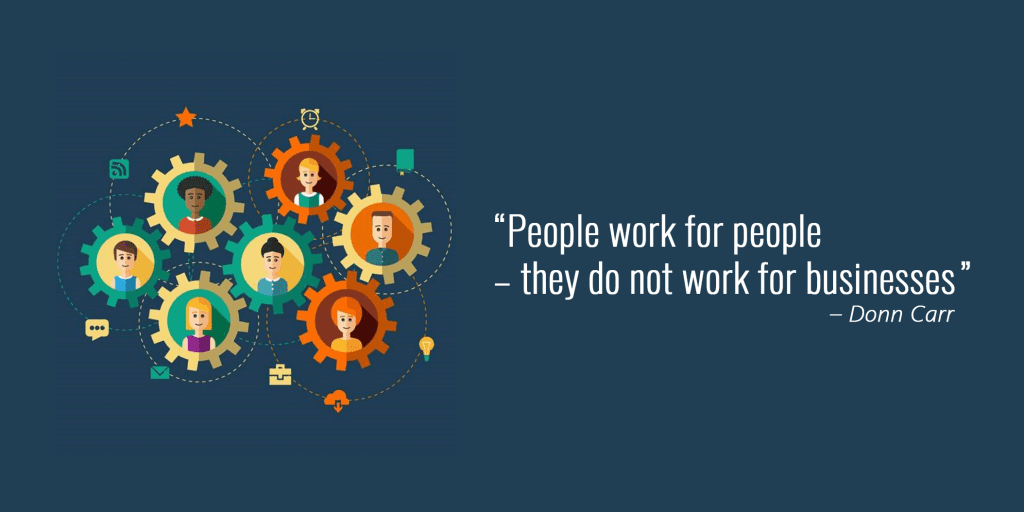Many centuries back, those who own enterprises and those who work in that enterprise have been divided so much so that man’s only tool for the management of its workforce until this century has been slavery. This lead to many debacles including the etymology of the African American in Northern America, the birth of apartheid in South Africa, the creation of bonded labour in countries such as South Africa and Sri Lanka to name a few.
The rise of management brought a new class of worker; a worker who would function in the best interest of the owners of a business. These workers with their specialist training were able to initially look after the interests of the owners and be impersonal and unemotional. As the science of management began to grow this class of worker began to better relate to the working class and began to explore better ways to optimise the use of labour.

Subsequently, work itself began to transform, and labour per se became a secondary force. While labour to date forms the backbone of an economy, the rise of the worldwide web and development of other communication technology gave birth to a workforce that would be purely knowledge driven. Immediately the Management class began to see the importance of new methods to control and manage this new breed of worker, whose labour took more of an intellectual form. This today, ladies and gentlemen is the burden that the HR management community had to contend with.
Retaining talented employees is a key challenge that companies face today. Turnover in the IT industry is a challenge. In demand and supply scenario in the backdrop of economies that do not necessarily look at lifetime employment, this has become a single most important challenge, at times spelling either success or failure of the enterprise.
Congratulations! So, you have been assigned a new role along with it comes the mammoth task of achieving challenging goals set for the organization. The only insight you have on this role is what you have received from your own manager, but is that enough? We often aspire to be like other industry idols, we tend to follow their management style and how they work. The key factor is will their management style work with your team?
Developing strong employee relations within an organization is no longer the sole responsibility of the HR division. Good line managers must be able to manage conflict, resolve problems and empathise whilst influencing and motivating employees daily.
Management vs. Leaders
Management is not just about assigning goals and evaluating performance and managing budgets; good leaders do all that while considering the well-being and professional development of each team member. Some big organizations such as Accenture, Deloitte have gone a step further by eliminating ranks and performance reviews/adopt simple review questions that require simple ‘yes’ or ‘no’ answers. Six percent of Fortune 500 companies have gotten rid of rankings, according to management research firm CEB1. Depending on the maturity level of the organization you can adopt different innovative practices and methods to govern internal operations. You must identify what works best for your company.What makes a great manager?
- Good leadership A good manager is actively involved with his/her team members. The managers should be able to roll up their sleeves and work with the rest of the team when it is required. Managing a team requires planning and allocating work, providing guidance, managing finances and resources and providing structure, direction and purpose to your team.
- Communication Provide regular meaningful feedback. Ensure your team is focused on the right areas. Make sure goals and objectives have been clearly defined at the start of the year. It is important that managers communicate honestly event if it means being unpopular. Especially in the millennial era, continuous feedback is a decisive factor for work satisfaction. Meeting regularly in scheduled one-to-one meetings with each team member is recommended to discuss activities, priorities, progress and problems.
- Transparency and a culture of trust The manager must be willing to share information such as strategic plans, budget, promotions and customer feedback. Transparent leadership creates a culture of trust. Managers must also empower their teams instead of micromanaging.
- Build a high-performance team Expect quality work from your team. Set high standards that are attainable.
- Recognise Employees who feel appreciated and involved within an organisation are likely to work harder to create a happy, positive and productive workforce.
- Empathy Managers should be able to feel the pain points of their team members thus being able to come up with real solutions that work for both the company and the employee.
- Adaptable The nature of work is changing so much so that managers are required to think out-of-the-box when it comes to managing their teams. Managers must be willing to try new methods even at the risk of failure. Technology has created global virtual workplaces; teams are geographically dispersed across the globe, working in different time zones.
- Careful consideration must be given when selecting line managers
- Set clear guidelines and standards on what is expected from a line manager and their job role.
- Acknowledge and encourage positive management behaviour and performance with rewards systems
- Professional development on people management/leadership for line managers on an ongoing basis
- Encourage and educate line managers on personal and professional development methods such as Skip level meetings, 360 feedback, etc.
Subscribe to our blog to know all the things we do
